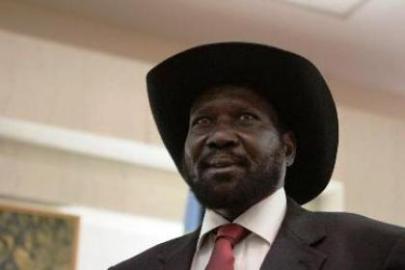South Sudan’s Kiir says hate speech is a red line
August 24, 2018 (JUBA) – South Sudanese President Salva Kiir Friday called on governors to create a suitable atmosphere for the implementation of the revitalized peace agreement stressing that hate speech is a red line.

Also, they point out that the hate speech and calls to kill the former First Vice President Riek Machar had been spread in the country and pushed Machar to delay his return in 2016. After what, tensions and mistrust between his loyal forces and the SPLA army precipitated another round of hostilities in July 2016 for two years.
In line with different statements about his commitment to implement a peace agreement that his government negotiated with the opposition groups, Salva Kiir took the opportunity of the swearing-in ceremony of three governors to recall the need to create a conducive environment in the country before the return of opposition groups.
“The President urged the governors to sensitize citizens about peace, adding that hate speech against the opposition members is a red line,” said a statement issued by the presidential press unit after an oath of office ceremony for the newly appointed governors of Aweil, Northern Upper Nile and Twic states.
South Sudanese officials, particularly at the level of local governments, are also accused of spreading hatred and tribal antagonisms between the population.
“The conflict is more about historical grievances that people have towards the other tribe,” said Saskia Baas, a South Sudan researcher in a report by IRIN last year about hate speech.
In this respect, the local politicians and leaders are accused of contributing to stirring up hatred and traditional conflicts between the different ethnic groups.
In a statement released on 10 August after the signing of the agreement on the governance chapter, the Troika countries called to involve the different components of the South Sudanese society.
“We remain steadfast that the best hope for sustainable peace is a process inclusive of ordinary men and women, civil society, religious leaders, ethnic minorities, and other excluded groups,” said the statement.
For his part, UN Special Envoy for South Sudan and Sudan Nicholas Haysom called to create a peaceful and safer environment in the country and to supplement the Regional Protection Force to ensure the protection of opposition leaders.
The IGAD mediators are preparing to resume discussions on the implementation matrix and some bracketed issues by the end of August in order to sign the final revitalized peace agreement during the first week of September.
(ST)
